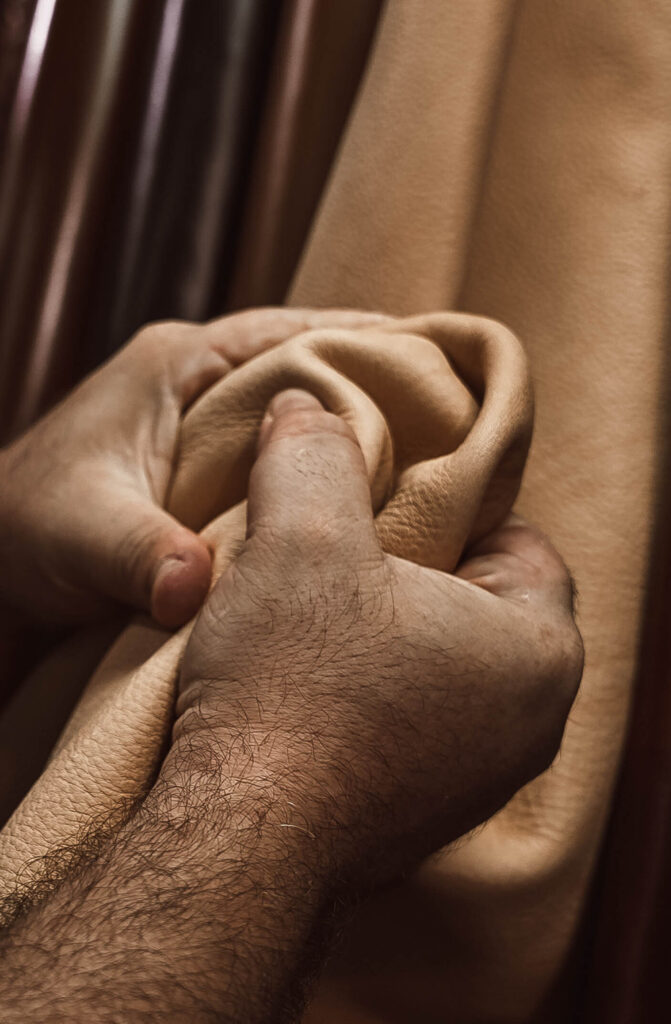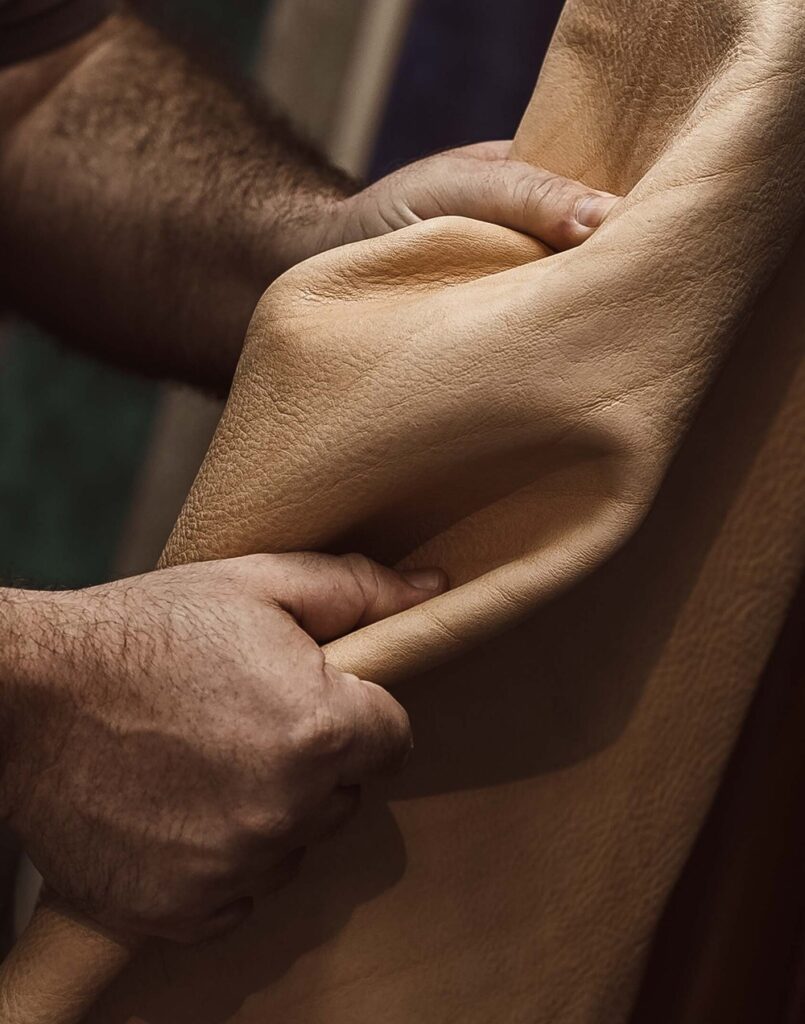LEATHER Sustainability
Sustainability embodies our commitment to mindful resource use, ethical practices, and environmental protection, ensuring a healthy present and a thriving future for generations to come.
Sustainability, along with Quality, stands as one of the two vital factors necessary for achieving certification from our organization.
Our organization has established four objective criteria for evaluating the sustainability of vegetable-tanned leather. Once the quality criteria are met, each sustainability criterion must be also met in order to achieve certification:
ETHICAL SOURCING OF HIDES
The leather must come from animals not slaughtered solely for their skin. This reinforces our commitment to responsible and ethical sourcing.
The ethical sourcing of hides dictates that the leather used in our products must be a byproduct of the meat industry, ensuring that no animal is killed exclusively for its hide. This approach not only aligns with our principles of sustainability and animal welfare but also promotes a more circular economy where every part of the animal is utilized to its fullest. By engaging with suppliers who adhere to these stringent standards, we are taking a stand against wasteful practices and supporting the welfare of animals. Our rigorous audit process includes regular checks and balances to guarantee that every hide is sourced in compliance with our ethical standards. Through these measures, we aim to foster transparency, accountability, and respect for the natural world in every aspect of our supply chain.
Effective Waste and Resource Management
Tanneries must fully adhere to ISO 14001, an international standard that mandates robust practices in waste management and resource conservation, including responsible water usage. This criterion aims to minimize environmental impact and promote sustainable utilization of vital resources throughout the tanning process.
To achieve compliance, tanneries engage in several key practices. Firstly, they implement water recycling systems to reduce consumption and prevent the discharge of untreated effluents into the environment. These systems use advanced filtration and treatment methods to ensure water is clean and reusable. Secondly, they adopt waste minimization strategies, such as the use of biodegradable chemicals and the repurposing of by-products into marketable goods, thereby reducing landfill contributions and conserving raw materials.
Vegetable Tanning
Tanneries must employ sustainable, plant-based tannins (such as quebracho, mimosa, and chestnut) and avoid hazardous chemicals like toxic metal compounds during the tanning process. This approach not only safeguards the environment and worker health but also fosters a sustainable and ethical leather industry.
Vegetable tanning, which uses organic materials such as tree bark and leaves, results in a biodegradable product that aligns with eco-friendly practices. By adhering to these methods, tanneries contribute to a circular economy where leather goods can be recycled or repurposed at the end of their lifecycle, reducing waste and the carbon footprint associated with leather production. Additionally, vegetable-tanned leather often develops a rich patina over time, enhancing its aesthetic appeal while maintaining its durability. As consumer awareness grows, the demand for sustainably produced leather is likely to increase, encouraging more tanneries to transition to vegetable tanning methods.
Proven Social Responsibility
We engage only with tanneries that have fully implemented the ISO 26000 standard. This commitment to social responsibility covers crucial aspects such as human rights, labour practices, and community involvement.
Our environmental stewardship extends beyond compliance with regulations. We systematically reduce our ecological footprint by adopting renewable energy sources, minimizing waste, and ensuring that our materials are sustainably sourced. Our approach is holistic, considering the entire lifecycle of our products to minimize their impact on the planet. We collaborate with suppliers who share our vision, contributing to a greener supply chain and fostering innovation in eco-friendly processes.


